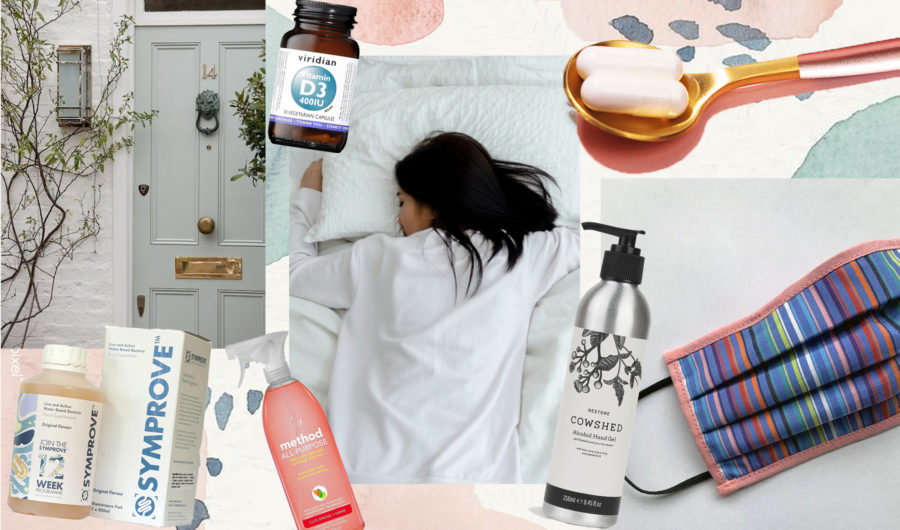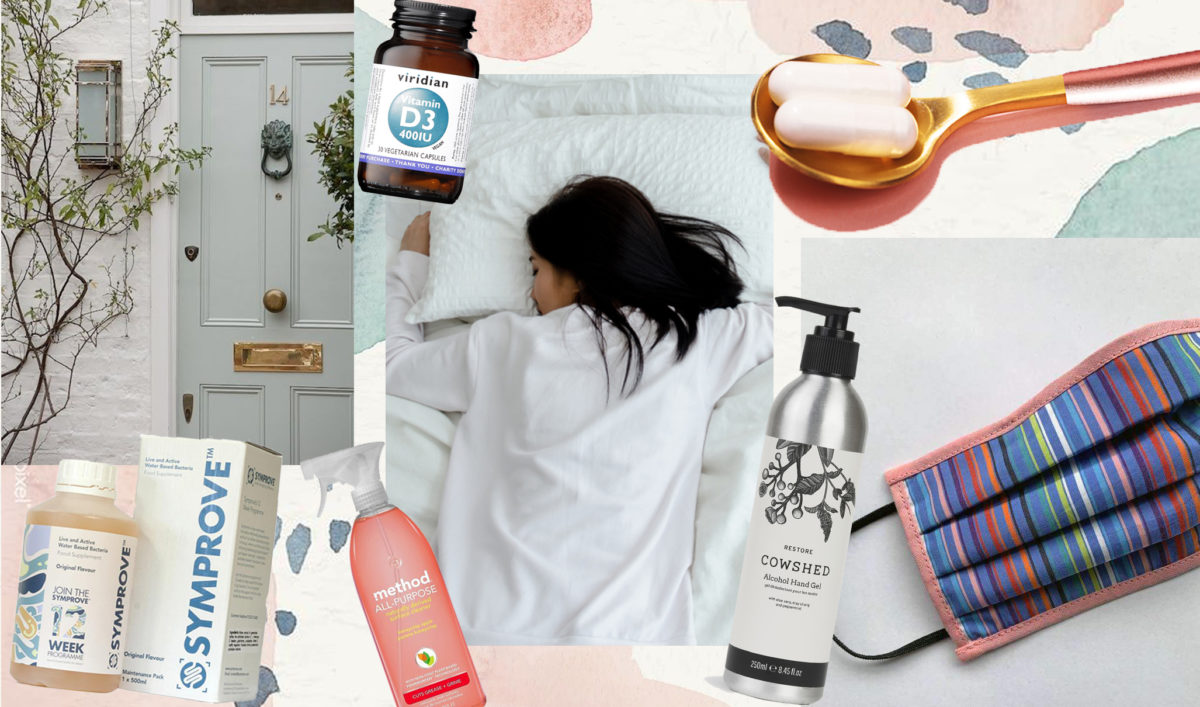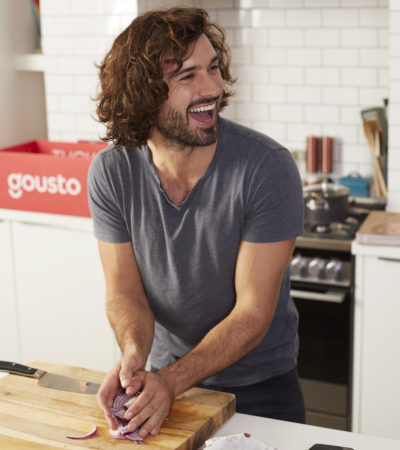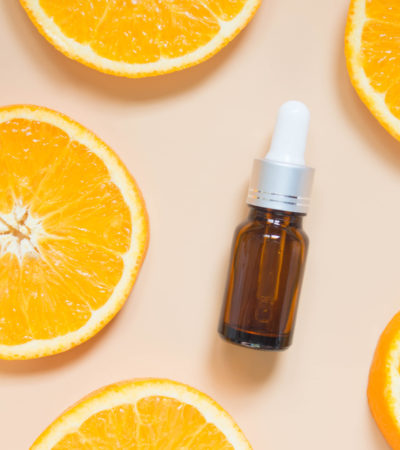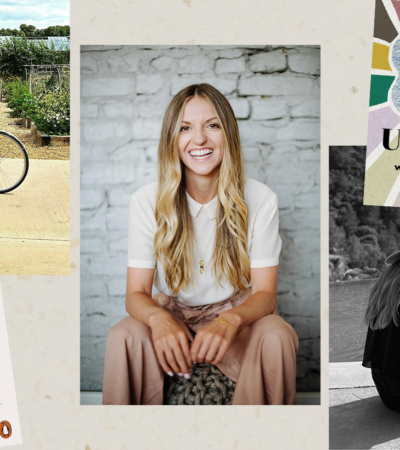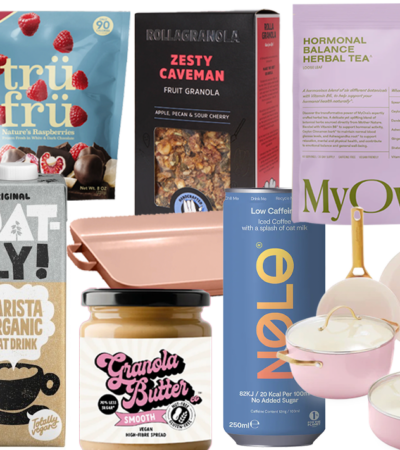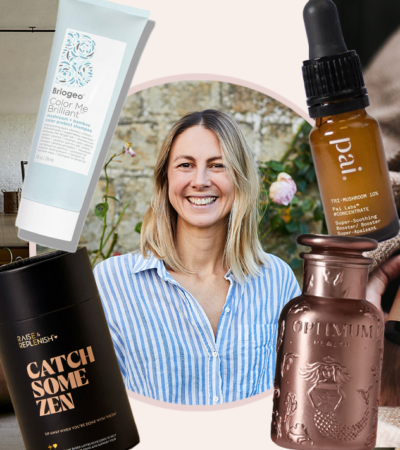As lockdown restrictions slowly start easing in the UK, you may be wondering how you can protect yourself and your family from the virus whilst having a bit more freedom. It’s true, we have to find a way to get back on track and get the country moving again but you’re not alone if the prospect of leaving your home (especially if you’ve been shielding) after months of confinement is making you feel anxious and apprehensive.
We’ve spoken a lot about boosting your immunity during this pandemic and as well as sharing some helpful tips on that post-lockdown, with the help of TV presenter, Dr Zoe Williams, we’re also going to share some practical tips that will help increase your chances of protecting yourself from COVID-19.
Vitamin D
There has been huge talk amongst medical and health professionals on the importance of vitamin D supplementation and the role it plays in supporting our bodies throughout the pandemic and beyond. It is thought this common vitamin (well, it’s technically a hormone) could be pivotal in reducing the severity of coronavirus by helping to reduce the body’s inflammatory response. D3 is the one to opt for and we love this one – Viridian D3 400iu.
Dr Zoe says…
This vitamin is important for healthy bones, teeth and muscles. It enhances the body’s absorption of other vitamins and minerals like calcium, iron, magnesium, zinc and phosphate. But Vitamin D can also support the immune system through a number of immune pathways involved in fighting SARS-CoV-2. Many recent studies confirm the pivotal role of vitamin D in viral infections. The NHS already recommends that we all take a daily maintenance dose of 10 micrograms (vitamin D3) from October until March anyway as most of us do not get sufficient sun exposure in the winter months. Some groups are advised to supplement all year round in normal times, such as those with darker skin, people who cover up their entire bodies with clothing and those who rarely get outside, which can often be the case for older people or those that are housebound. And as this year we are in lockdown, the NHS advice is for all of us to continue taking a supplement. Vitamin D supplements can be bought at most pharmacies and supermarkets, either as a stand-alone supplement or in combination with cod liver oil, which contains omega-3, another essential nutrient.
Face Masks
With it now being mandatory that face masks should be worn on all public transport and in hospitals (be it outpatient or visitor) it’s clear that sporting one will help protect against COVID-19 transmission. While this is true, it’s been explained that it’s mainly effective at preventing YOU from spreading it to others rather than protecting yourself from others who have it. The scientists still seem to be unsure but either way, it’s an important part of this next phase of easing lockdown. You can either make your own or you can buy them ready-made. We’d recommend these face masks from Fashionizer Spa. It’s important to note that surgical face masks must be saved for medical settings due to trying to avoid shortages on PPE.
Dr Zoe says…
A face covering must cover both your nose and your mouth to be effective. You must also be able to breathe through it comfortably, so cloth, cotton, or t-shirt material tends to be best. You can make your own, or simply use a scarf or bandana. Wash your hands or use hand sanitiser before putting it on and after taking it off. Avoid touching your eyes, nose, or mouth at all times and store used face coverings in a plastic bag until you have an opportunity to wash them. You should wash face-coverings regularly. It can go in with other laundry items, using your normal detergent. Remember, there is no evidence that wearing a face-covering protects you as the wearer. It protects people that you have contact with, in the scenario that you are transmitting the virus.
Hand Sanitizer
Getting hold of hand sanitizer at the beginning of this pandemic was like trying to find a needle in a haystack! Luckily, it’s now much easier to find and there are some lovely brands now selling hand sanitiser. While it’s important to know that the best way to keep your hands virus-free is washing them with soap and water for 20 seconds, hand sanitizer is a must-have if you’re heading back to work or going to be exposing yourself to slightly riskier environments such as public transport. Daylesford and Cowshed, two of our fave brands have both launched their own hand sanitizers which smell divine! If you want to make it easy to remember to sanitize, set an alarm on your phone so you never forget!
Dr Zoe says…
Regular handwashing with soap and water remains the single most important behaviour to protect yourself from becoming infected with viruses, including coronavirus. But, as we are making the gradual move towards normality, be that returning to work, going to the shops, or sitting in a friend’s garden for a few hours, access to a sink may be limited. So, carrying hand sanitiser is a close second best. You should use the hand sanitiser frequently, and especially after touching things that others have touched, such as shopping trolleys and door handles. And don’t forget to moisturise your hands, all the hand washing, and sanitising increases the risk of dermatitis, so make regular use of an emollient or hand cream.
Gut Health
You’ve likely read about the link between gut health and immunity so now, more than ever, is the time to hone in and make sure your digestive system is in good order. Some easy things you can do to improve your gut health in speedy fashion is to make sure you’re getting enough fibre. This will help regulate your bowels and help with bloating. Secondly, eat the rainbow and make a habit of not eating the same meals week in week out. You want your good gut bacteria (or your microbiome as they say) to be as diverse as possible. Different foods offer different microbes so shake up your weekly menu! Thirdly, up your pre-biotic and pro-biotic foods. Pre-biotic foods like bananas, oats and flaxseeds, and pro-biotic foods such as sauerkraut, kefir, kombucha and yoghurt are some great choices. Finally, get on to a good probiotic. There are many good ones out there but a firm favourite of ours is Symprove.
Dr Zoe says…
Look after your gut bugs, and they will look after you. Eating lots of high fibre ‘prebiotic’ foods and eating a large variety of plant foods will support your gut microbiome to be both abundant and diverse. One way to achieve this is to aim for 30 different types of plant species each week (including fruit, veg, nuts and seeds), which sounds like a lot, but if you snack on mixed nuts and seeds and add tins of mixed beans and pulses to bulk out soups, stews, Bolognese and curries you can easily get there, and in a way that is both cheap and healthy.
Sleep
Sleep is absolutely essential for a healthy body and strong immune system. There’s no doubt about it. Sleep is your recovery time where repair and cell renewal takes place and skrimping on it will absolutely have an impact on your wellbeing, even in non-corona times. Getting a good 7-8 hours a night is going to give your body the best chance at fighting off illness it’s one of the most important things you can do if you actually have coronavirus. By getting adequate sleep, you’re not only boosting your immune system but also regulating your hormones, appetite and mood as well as reducing cortisol.
H&H Reads – Putting Anxiety To Bed: 9 Things Helping Us Sleep Right Now
Other things you can do…
Clean your phone regularly – It’s an easy place for bacteria to grow so as well as keeping up good hand hygiene, the same goes for your phone.
Change your clothes – After a day of being back at the office and commuting on the tube, you might want to take a leaf out of China’s book and have indoor and outdoor clothes. It’s commonplace there to separate the two at the front door and not only is this a hygienic habit to get into but it’s also a great way to change the tone of your day by intentionally separating work from home.
Keep your front door clean – Things like cleaning letterboxes, locks and door knockers are important to keep up as we enter the next phase of lockdown. Not only will this keep you safe but also your beloved post!
H&H Reads – These Are Our Go-To Brands For Natural Cleaning Products
Avoid eating on the go – We’ve all scoffed a pret salad on the run to a meeting or on the tube before but now is probably not the best time to be eating whilst out and about. We know that touching your face and putting your fingers in your mouth are the most common ways of transmission so unless you’re super vigilant about sanitizing, we’d suggest keeping meal and snack times at home or safely at your desk after you’ve washed your hands.
The final thing we want to add is, of course, if you experience any coronavirus symptoms that are listed on the NHS website then STAY HOME. Just because we are easing out of lockdown does not mean we should ease up on this.
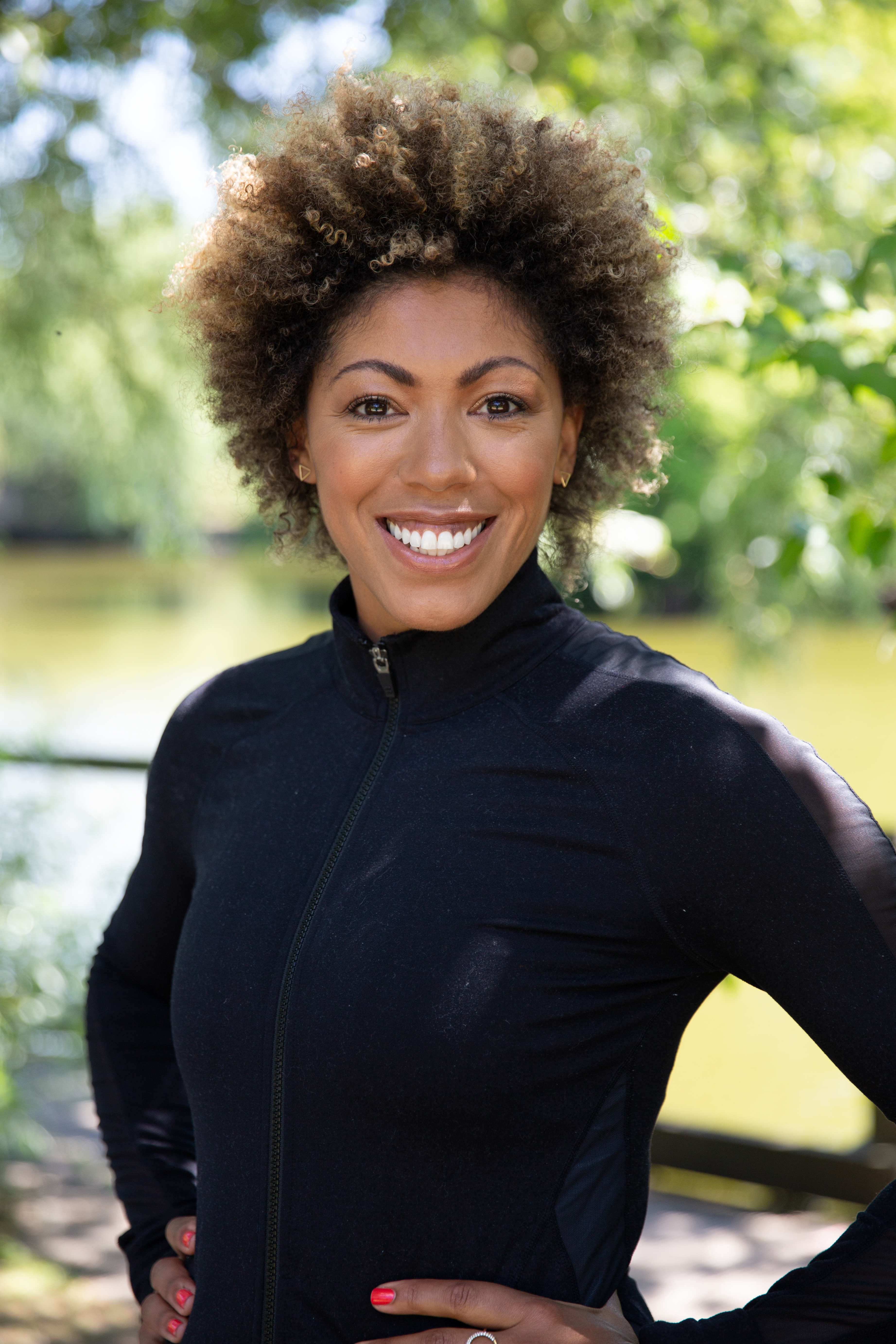
Dr Zoe Williams has been supporting a new body of research that has found links between Omega 3 and the maintenance of heart health, mental health (e.g. Depression and Schizophrenia) and brain function (e.g. Alzheimer’s). Taking a daily supplement, like a cod liver oil capsule, is a great way to get Omega 3 into your diet as the body can’t produce on its own.

